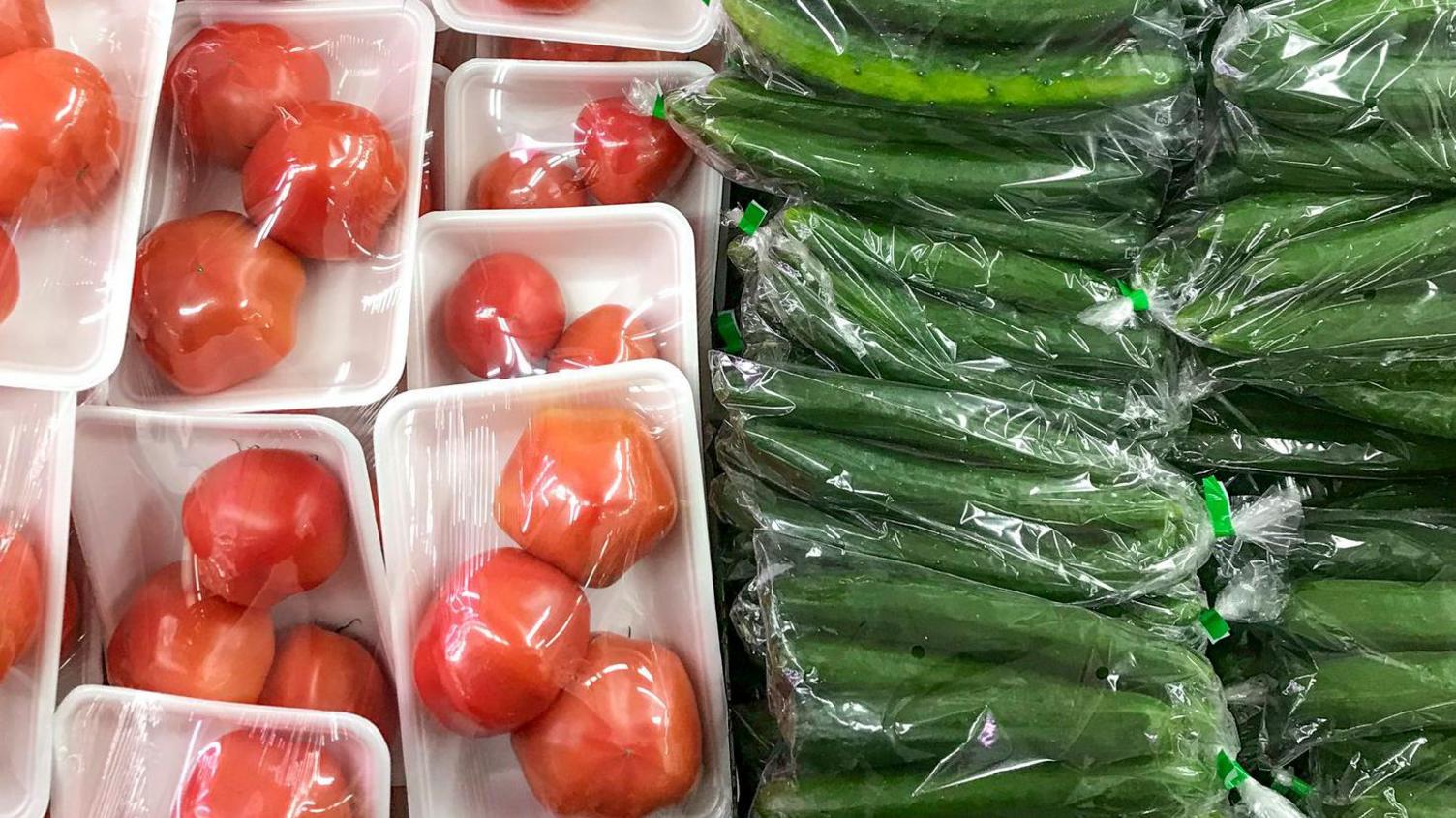Plastic wrap veg ban 'could mean more food waste'

Whether or not fruit and vegetables need plastic wrapping has long been a talking point
- Published
Banning retailers from selling fruit and vegetables wrapped in plastic might mean more food waste, a Welsh minister has warned.
Deputy First Minister Huw Irranca-Davies was responding to a call to make shops offer fruit and veg loose when less than 1.5kg is bought to cut plastic waste.
The proposal came from independent Senedd member (MS) Rhys ab Owen, who said "plastic packaging, very often, is entirely wasteful, is unnecessary, and is purposeless",
But Irranca-Davies said environmental charity Wrap, which has suggested such a ban be considered, external, had asked whether a 1.5kg rule could encourage the purchase of larger packs with more food than was needed.
Plastic spends century on ocean surface, study finds
- Published31 October
Plastic wet wipes to be banned in Wales from 2026
- Published19 June
Welsh bottle returns to start in 2027 - without glass refunds
- Published15 July
In October last year, Wrap recommended a "phased approach" to a ban, starting with 21 fruit and vegetables, with some exemptions, including apples, bananas, broccoli, carrots, onions and potatoes.
Addressing the Welsh Parliament on Wednesday, South Wales Central MS Ab Owen said "greengrocers, market stalls and many corner shops already operate, and have over the years operated, on the principle of buying only what you want from a crate of produce that isn't wrapped in plastic".
"And that's how fruits and vegetables have been bought across the centuries," he said.
"That's how our grandparents shopped. It's how we and our children should shop.
"In terms of practicalities, I think a bill passed on this principle would allow Welsh ministers to add and remove items from the list when they see what works in practice and what doesn't work and then respond to it."
However Irranca-Davies said Wrap had asked if such a policy could "inadvertently encourage consumers to purchase larger packs, potentially having the opposite effect of increasing food waste, increasing consumption that is not needed, increasing purchase that is not needed and increasing food waste and household costs as well, while we have cost-of-living issues?"
The charity, he said, had warned retailers could increase unit prices to compensate for lower sales of fruit and veg sold loose, which could "disproportionately affect those on lower incomes whose grocery bills tend to make up a larger proportion of their limited income".
Irranca-Davies, also Welsh government Climate Change and Rural Affairs Secretary, said "public perceptions of hygiene in handling fruit and vegetables" also needed to be considered.
"I'm used to going to a local grocer - a local fruit and veg supplier; loose vegetables put into a paper bag, and so on," he said.
"For many, myself included, this wouldn't be an issue.
"However, understanding wider public perceptions, particularly in modern retail environments, is an important consideration that we need to think about."
Ab Owen said he was used to such responses from Welsh ministers
"I think we need bolder governance here in Wales, where people are willing to make decisions, where they don't wait and wait and wait until they know 100% that this the right thing," he said.
"Sometimes, we just need to get on and do it."